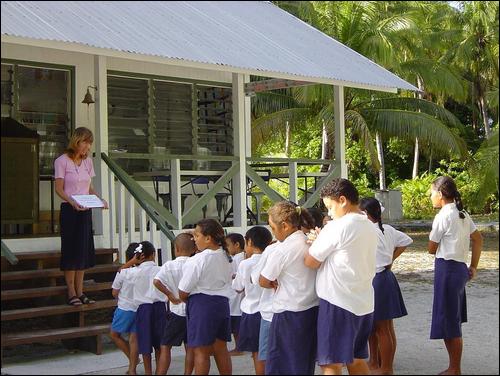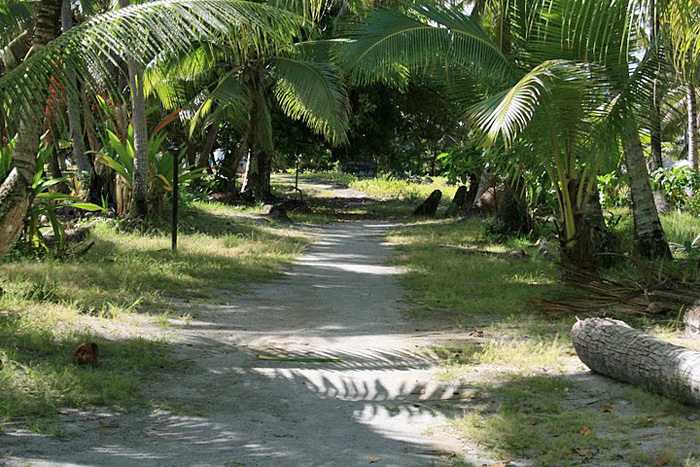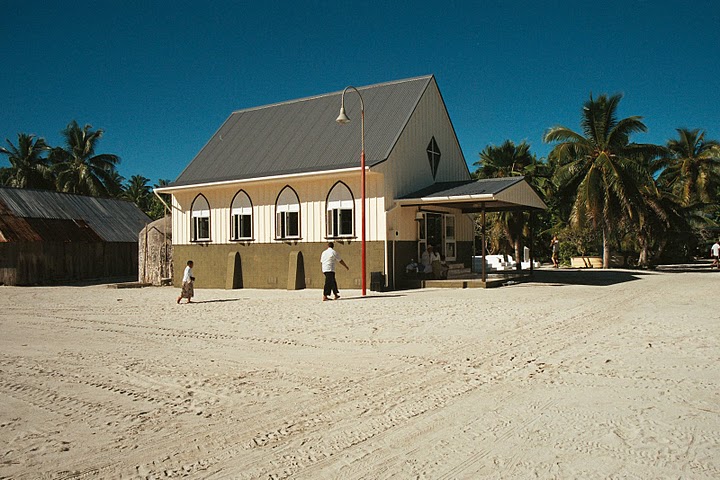This account of daily life on remote Palmerston was written by Sandra Paterson, a former New Zealand Herald journalist who lives on Rarotonga. She spent five weeks helping at the local school in 2009. Sandra also taught news writing skills to the older pupils. It's a fascinating, thoughtful and rare insight into a very small isolated community

STARTING THE SCHOOL DAY
It is 8.30 am on a Monday and the children at Palmerston Island’s tiny school are reciting their daily pledge. Hair neatly smoothed with coconut oil, hand on Bible, they chant, “I promise myself to my Lord Jesus Christ. I promise myself to my country, Cook Islands, I promise myself to my school, Palmerston Lucky School.” With a loud “Amen,” it is time for maths, and they settle quickly and quietly into reviewing their times-tables. School starts slightly later on a Monday because the teachers go first to a meeting at the island’s administration centre


